Import Horses from Kyrgyzstan
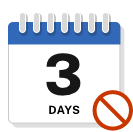
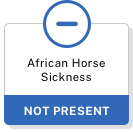
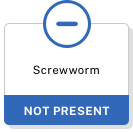
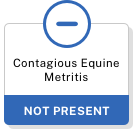
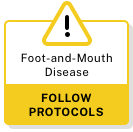
General Information
Generally, horse owners will enlist the services of a broker/shipping agent to bring a horse into the United States. While APHIS does not require the use of a broker/shipping agent for importing horses, experienced brokers can coordinate the efforts of airlines, customs brokers, APHIS, and other partner government agencies to ensure the safety of the animals, facilitate clearance of the shipment, and schedule a timely arrival. These agents are familiar with the documents and processing associated with import and export regulations. Learn more about using a broker/shipping agent.
Horses Importing into the United States From Countries Affected With FMD
The official health certificate should document that the horse is importing form a country affected with foot-and-mouth disease (FMD). The health certificate accompanying the horse must be endorsed by a full-time salaried veterinarian of the agency responsible for animal health of the national government of the exporting country (the competent veterinary authority).
The health certificate should state:
- Within 5 days prior to export, the horse has not been on any premises or quarantined area identified to be affected with FMD, nor has the horse been in contact with animals that have been in a FMD region or on an FMD affected or quarantined premise. The horse will not have direct or indirect contact with domestic or wild ruminants or swine for a minimum of 5 days before entering the USDA quarantine facility.
- Immediately prior to export, horses from countries where FMD exists, as well as horses in contact with any horses from those countries, will be groomed to remove dirt and debris, followed by being wiped, sprayed and/or sponged down with vinegar or a solution of 6.5 ounces of concentrated glacial acetic acid in one gallon of water or another approved disinfectant.
- Immediately prior to export, the horse’s hooves will be cleaned and free of dirt, manure, and debris, and then disinfected with a 4% sodium carbonate solution or another approved disinfectant. The same procedure will be performed upon arrival in the United States at one of USDA’s animal import quarantine centers.
- Prior to loading the horse, all crates and transportation vehicles were cleaned and disinfected with an approved product.
- Any equipment (tack, blankets, sheets, leg wraps, etc.) accompanying the horse has been laundered or cleaned to remove dirt and debris prior to disinfection with an approved product.
- The equipment was cleaned and disinfected with a 4% sodium carbonate (soda ash) solution immediately prior to shipment. The disinfectant used will have removed the risk of this equipment transmitting the foot-and mouth disease virus.
Health Certificate
An official hard copy of a valid health certificate, written in English, is required for entry. The official health certificate must be issued by an authorized veterinarian in the exporting country and endorsed by a full-time salaried veterinarian of the agency responsible for animal health of the national government of the exporting country of origin.
Certification and testing is described in the following Health Certificates
Please Note: The original health certificate MUST accompany the shipment upon arrival.
Certification and testing are described in the Horse Import 3-Day FMD Sample Health Certificate (59.14 KB).
Available Ports
APHIS Port Services
Use the dropdown below to locate airports that accept live equine shipments.
Quarantine Information
Horses coming from this country are considered to be free from screwworm, African horse sickness, and Venezuelan equine encephalomyelitis. This means that they require an observation period in quarantine (minimum 42 hours) plus blood testing for dourine, glanders (Australia exempt from both dourine and glanders testing), equine piroplasmosis, and equine infectious anemia. If originating from a country APHIS considers to be free of contagious equine metritis, they will be released after completing the initial quarantine without any further testing.
To officially enter the United States, horses from this country will require:
- An official health certificate, issued by the exporting country.
- An import permit, issued by the National Import Export Services.
- A reservation at an animal import center and at an approved CEM quarantine facility, if applicable.
Fees and Permitting
The processes and fees involved with importing horses and other equine, as well as equine germplasm (semen, embryos, and cloning tissue), depend on the conditions of entry.
APHIS charges a fee for the application of an import permit and for amending and renewing a permit if applicable.
Applications for import permits may be submitted by mail to the National Import and Export Services at the following address:
Live Animal Import Permits
USDA-APHIS-Veterinary Services
National Import Export Services
4700 River Rd. Unit 39
Riverdale, MD 20737
Applications may be submitted to the National Import and Export Services via the dedicated email address laipermits@usda.gov.
Online Submission Process for Live Animal Import Permits
Importers with an existing Level 2 eAuthentication can now access eFile to create and submit a completed application (VS Form 17-129) for an import or transit permit for APHIS-regulated live animals and their germplasm (genetic resources). Apply now in APHIS eFile.
Costs are associated with providing services for importing and transiting horses at airports, ocean ports, rail ports, land border ports, and southern border port and animal import center quarantines.
The fees billed are per individual horse. Charges for combined shipments may be split between brokers.
Overtime rates apply for after duty hours, weekends, and holidays for inspection services. 9 CFR 130.30
There is a comprehensive fee for horses staying at a Federal quarantine center with a decreasing scale: days 1 to 3, days 4 to 7 and 8 through subsequent days. The daily rate includes all administrative costs conducted during normal business hours: examination on arrival, routine veterinary care, lodging costs for feed and bedding, obtaining test samples and processing them for shipping to the National Veterinary Services Laboratory, supervision of cleaning and disinfection of trailers and stalls, receiving and releasing horse shipments, identification of each horse on arrival and release, reviewing health certificates and issuing import permits to ensure compliance with import regulations, monitoring horses while they are in quarantine, release of paperwork in Veterinary Services Process Streamlining (VSPS), and oversight of horses shipping under APHIS seal to State CEM quarantine facilities. 9 CFR 130.2
Private quarantine facilities will bill user fees directly to importers on a quarter hour to hourly rate. APHIS factors cost in these instances by the time spent for each service, which includes travel time to ports and airports for veterinary inspections.
Hourly rates also cover the costs of monitoring in-bond or transiting horses passing through the United States and exporting to other countries.
Animal semen, embryos and cloning tissue may not be imported into the United States from a region other than where it was collected.
Any semen and embryo shipments should be routed directly to the United States with no stops other than those designated on the import permit.
Requirements for Importation of Equine Semen and Embryos into the United States.
An import permit is necessary for import of equine semen, embryos, and cloning tissue into the United States. Animal semen, embryos, and cloning tissue may not be imported into the United States from a region other than where it was collected.
An official health certificate, written in English, is required for the importation of semen, embryos, and cloning tissue. Collection should follow the regulations of the respective country’s approved artificial collection centers for export of equine semen to the United States. The official health certification must be endorsed by a full-time salaried veterinarian of the agency responsible for animal health of the national government of the exporting country of origin.
Donor stallions not native of New Zealand may need to be tested for dourine (Australian horses are exempt from testing) using a complement fixation test. Exemptions apply. Please contact Live Animal Imports and Exports at laie@usda.gov.
The donor stallion must also be free from any quarantine or movement restriction for not less than 60 days prior to semen collection.
Generally, importers will use a broker/shipping agent to bring equine semen and embryos into the United States. Learn more about using a broker/shipping agent.
Animal semen, embryos, and cloning tissue may not be imported into the United States from a region other than where it was collected.
The certified semen must be collected in a country considered by APHIS to be free of African horse sickness (AHS).
Any semen and embryo shipments should be routed directly to the United States with no stops other than those designated on the import permit.
Permit
The importer must be based in the United States and must obtain the import permit from the APHIS Riverdale, MD, office. The import permit will accompany the shipment. Submit applications for the import permits by eFile, or by filling out the application form electronically and downloading it. Then fax, mail, or scan and email the form to the office directly.
Health Certificate
An official hard copy valid health certificate, written in English, is required for entry. The official health certificate must be issued by an authorized veterinarian in the exporting country and endorsed by a full-time salaried veterinarian of the agency responsible for animal health of the national government of the exporting country of origin.
Sample Health Certificate for Equine Semen (192.5 KB)
Sample Health Certificate for Equine Embryos (187.11 KB)
A phantom teaser is preferred over a live teaser mare, if using a live teaser the mare has not been used for natural or artificial breeding prior to entrance into the semen collection center.
All animals must be tested with negative results for dourine within 30 days of the date they enter into the semen collection unit. Subsequent testing for dourine must be conducted at 180-day intervals if the stallions and mares remain in the semen collection unit.
Stallions must not be used for natural breeding for a period of time starting 15 days prior to the initial tests for CEM, while the stallion is in the collection unit and while semen is being collected for export to the United States. Before semen is collected, the stallions must be cleaned and then cultured negative for CEM.
All equipment used for collection, processing, and shipping semen must be new equipment or sanitized prior to use.
Collected semen must be processed with a semen extender with milk from a country free of foot-and-mouth disease at the time of collection or with egg originating from a country recognized by APHIS to be free of Newcastle disease or reportable avian influenza.
Collection should follow the regulations of the respective country’s approved artificial collection centers for export of equine semen to the United States. The veterinarian issuing the health certificate should directly oversee collection, processing, and storage, including placement of semen into individual containers or in straws permanently marked with the identification of the stallion, date of collection, and the collection unit. The certifying veterinarian will maintain custody of the semen until it is placed in the shipping container and sealed with official seals of the government of the country of origin.
Equine semen/embryos containers and tanks from a country affected with FMD shall be disinfected at the airport in the exporting country prior to departure and again upon arrival to the United States.
Available Ports
Ports listed have APHIS oversight for physical inspections and cleaning and disinfection of containers.
- Atlanta, GA
- Dallas, TX (DFW)
- Houston, TX
- Los Angeles, CA (LAX)
- Memphis, TN
- Miami, FL
- Minneapolis, MN
- Newark, NJ
- New York, NY (JFK)
- San Francisco, CA
Fees and Permitting
The processes and fees involved with importing horses and other equine, as well as equine germplasm (semen, embryos, and cloning tissue), depend on the conditions of entry.
APHIS charges a fee for the application of an import permit and for amending and renewing a permit if applicable.
Applications for import permits may be submitted by mail to the National Import and Export Services at the following address:
Live Animal Import Permits
USDA-APHIS-Veterinary Services
National Import Export Services
4700 River Rd. Unit 39
Riverdale, MD 20737
Applications may be submitted to the National Import and Export Services via the dedicated email address laipermits@usda.gov.
Online Submission Process for Live Animal Import Permits
Importers with an existing Level 2 eAuthentication can now access eFile to create and submit a completed application (VS Form 17-129) for an import or transit permit for APHIS-regulated live animals and their germplasm (genetic resources). Apply now in APHIS eFile.
Costs are associated with providing services for importing and transiting horses at airports, ocean ports, rail ports, land border ports, and southern border port and animal import center quarantines.
The fees billed are per individual horse. Charges for combined shipments may be split between brokers.
Overtime rates apply for after duty hours, weekends, and holidays for inspection services. 9 CFR 130.30
There is a comprehensive fee for horses staying at a Federal quarantine center with a decreasing scale: days 1 to 3, days 4 to 7 and 8 through subsequent days. The daily rate includes all administrative costs conducted during normal business hours: examination on arrival, routine veterinary care, lodging costs for feed and bedding, obtaining test samples and processing them for shipping to the National Veterinary Services Laboratory, supervision of cleaning and disinfection of trailers and stalls, receiving and releasing horse shipments, identification of each horse on arrival and release, reviewing health certificates and issuing import permits to ensure compliance with import regulations, monitoring horses while they are in quarantine, release of paperwork in Veterinary Services Process Streamlining (VSPS), and oversight of horses shipping under APHIS seal to State CEM quarantine facilities. 9 CFR 130.2
Private quarantine facilities will bill user fees directly to importers on a quarter hour to hourly rate. APHIS factors cost in these instances by the time spent for each service, which includes travel time to ports and airports for veterinary inspections.
Hourly rates also cover the costs of monitoring in-bond or transiting horses passing through the United States and exporting to other countries.

